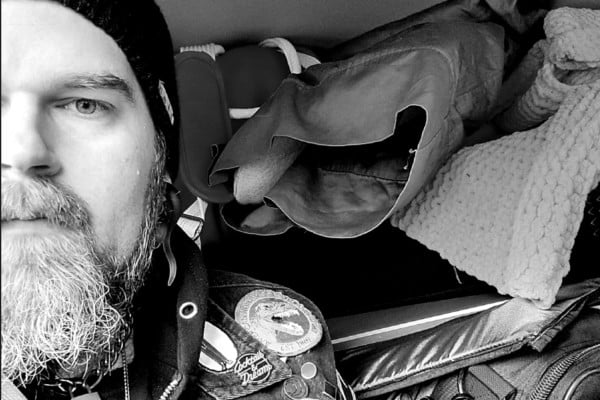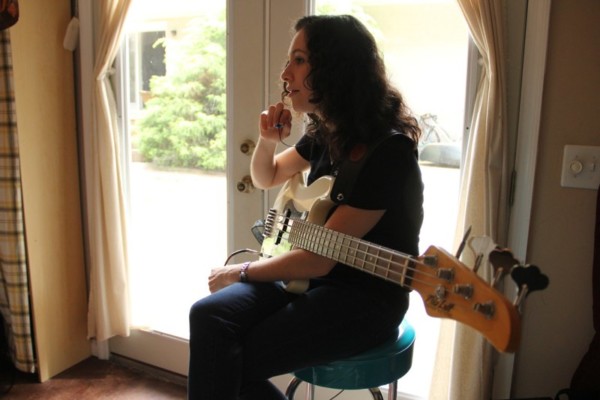Freelance Gigs: Five Tips for Bass Players

The last “Tips” column (on avoiding injury), was a popular one. So let’s continue this series with some tips on freelancing.
1. Be Musically Prepared
If there is sheet music, review it. If there are recordings, listen to them. As much as possible, be familiar with all the parts. Be acquainted with the melodies, harmonies, key rhythmic devices, etc. inherent in the music. If it’s a sight-reading gig, then make sure you are a crack sight-reader before you take the gig. Don’t risk an unfortunate musical incident.
2. Bring Two of Everything
Cords give out, bows fall apart, strings break. Carry backups. Power strips, extension cords, tuners, batteries…anything you might need. I don’t carry two amps or two basses, but I would if it were reasonable.
3. Arrive Early
Arrive early, get setup and make sure all of your equipment is functioning (see above). Getting to the venue early will make things less stressful, not only for you, but also for your colleagues. Don’t make them wonder if they have a bass player for the night. Being there ahead of time will furthermore let the contractor, or bandleader, know you are respecting the gig, and it’s one less hassle for them.
In a practical sense, it also allows for the unexpected, such as bad traffic, parking issues, flat tires, etc. I suggest erring on the side of being too early, rather than cutting it too close. I plan my arrival early enough that even if everything goes wrong on my way to the gig, I won’t miss the downbeat.
4. Dress Appropriately
Some gigs require specific dress (i.e. tails, tuxedo, white tie, suit and tie, etc.), and you should certainly make sure you dress appropriately for these gigs. In some situations, of course, the dress is explicitly casual, but in general you can’t go wrong dressing professionally. If you arrive and you are over-dressed, ties can come off and sleeves can be rolled up. Finding a jacket and tie if you are under-dressed, however, may prove more difficult, however.
Since many of my gigs require tuxedo or suit, I also follow the “two of everything” idea with clothing: I’ve got both white and black bow ties in my glove box, for instance…just in case. Showing up in inappropriate dress makes you seem inexperienced or unprofessional, and it can mean that it’s the last time you play with that group, or get hired by that contractor.
5. Be Courteous
For many gigs, the ability to get along with your colleagues is an important part of being asked back. You should assume that there are many, many other bass players out there who have the skills necessary to play any particular gig. If you aren’t cordial, people may regret hiring you, no matter how well you play. In general, if you are difficult to deal with, someone else with the same skills and who is better at interpersonal relationships will get the next call.
How about you? What are your tips for successful freelancing? Please share in the comments.
Dr. Donovan Stokes is on the faculty of Shenandoah University-Conservatory. Visit him online at www.donovanstokes.com and check out the Bass Coalition at www.basscoalition.com.




Keep an Arsenal of seasoned Bassists to draw from so that when you get offered work but can’t accept cause your already booked you could still be helpful – Let the band leader know that your unavailable but really wish you could take it – then – offer suggestions for Players you would refer as a helpful resolve. In addition:……… Don’t let the potential band leader know that you can’t accept because your on another gig. In my experience, there are more than a few band leaders out there whom take everything personally. Its true. These are the Kats that refuse to acknowledge that your a Pro and need to keep the calendar filled..
I mean, most of this stuff is basic common sense. If you need an article to remind you to be courteous, perhaps the entertainment industry isn’t for you…
Sadly, there are enough folks out there that do not understand there are a lot of jerks in the field. If you show up, are competent and you are not a jerk you WILL have work. Many folks miss at least one of those.
You’d be surprised how many people don’t know how to dress appropriately for formal or even slightly informal gigs or are just plain unprepared or unprofessional. I’ve seen it all. Musicians show up in t-shirts and Chuck Taylor’s, no extra strings, no amp, drummers with no vehicles, haven’t gone over material and think they can “wing it” (“hey, it’s just blues, man. I-IV-V. Duuuuuhhh!!”). Common sense isn’t that common.
have done many gigs without any charts,so best is to play very safe, no fancy stuff ,and listen,even a common song may have a variation in the arrangement,
the gigs I do ,I find a p or j bass is best ,I leave my lakland and alembic at home,
I busk most styles but aint a master of none, spose that’s an art in its own
There’s lots of things that you can do. One is to make a “goody bag”. A zip lock gallon bag could hold a couple extra fuses. a couple cable ties, band-aids, small flashlight, a small tube of super glue, you know those little things that would come in handy in case emergency. Also be willing to share. I had an occasion to help out another musician on a gig with that little goody bag and I know that it saved the day for him and has led to other gigs for me…cause I was prepared.
A small tool kit with Allen wrenches, a pair of needle -nose pliers, and a Phillips and flathead screwdriver has been known to be immeasurable in saving one’s bacon at a gig. I’ve seen guys with entire tool kits in their vehicle trunks.
“You should assume that there are many, many other bass players out there who have the skills necessary to play any particular gig.”
All you need to know.
That’s the bottom line. (Pun not intended :-) )
If possible, I do learn the all music by heart and keep as much eyecontact as possible during the gig. I will always ask, or at least go for a hint, if they were satisfied with my performance and I’ll always show my appreciation and respect for what they do musically.
These things should be common sense yes. But you’d be surprised how many musicians – not just bassists – thrive on the stress they cause when they can’t work inside the parameters of the gig, regarding rehearsals, performances.
Showing people their gig matters to you is key to future gigs, and good relationships.
Be prepared, and be willing.